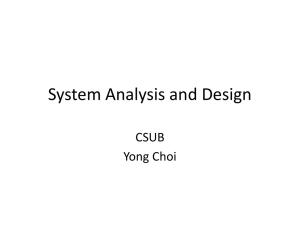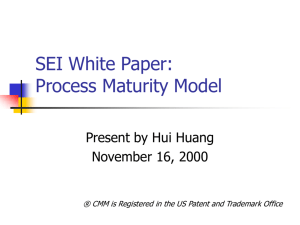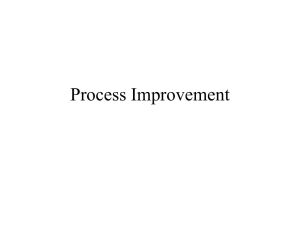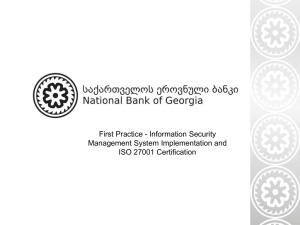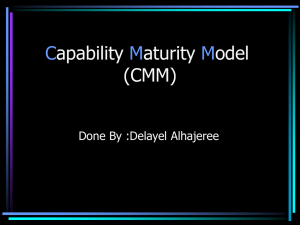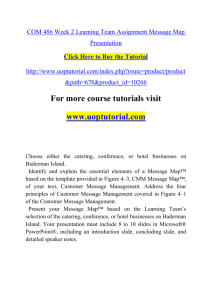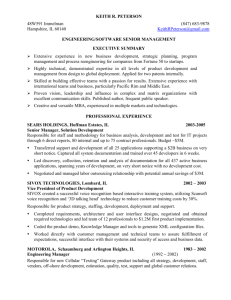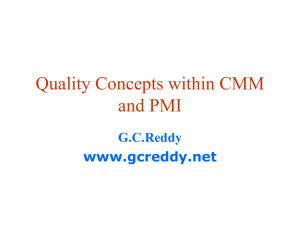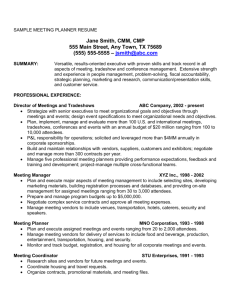CMMI Presentation
advertisement
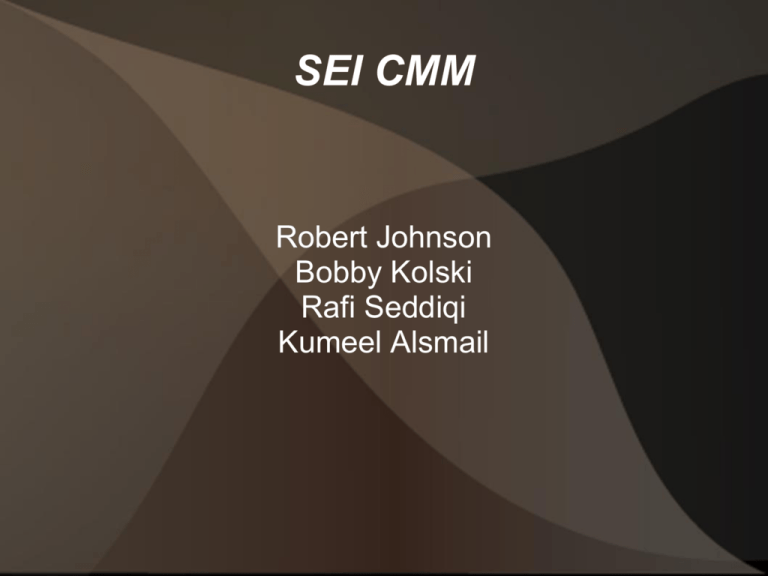
SEI CMM Robert Johnson Bobby Kolski Rafi Seddiqi Kumeel Alsmail Main Goals of CMM • Provide an organization with the framework for improving its processes and its ability to manage the development, acquisition, and maintenance of products or services. o This is provided through appraisals and assessments of the organization's processes, based on CMM criteria. • Provide “clients” with a maturity scale rating for potential vendors o The more mature an organization (Higher CMM Rating), the more likely its processes and development are to succeed RDJ First Appearance of CMM • The process maturity model CMM is based on was first described by Watts Humphrey in the book Managing the Software Process • CMM was first published in a Technical Report in 1993 and as a book in 1995 o o “Capability Maturity Model for Software” Mark C. Paulk, Bill Curtis, Mary Beth Chrissis, Charles V. Webe RDJ What motivated CMM/CMMI? • In the 1980's military projects ran over budget. o United States Air Force funded SEI study • The model CMM was being used for software development, but problems were found when multiple instances of CMM were being used o o CMMI was created to address this issue CMMI is Capability Maturity Model Integrated BK CMM vs. Six Sigma CMM - Designed with Software in mind • • • • Design gols - These do not focus on the customer Organization Improvement - Improve methods and processes Key Process Areas: Initial, Repeatable, Defined, Managed, Optimizing Planning and Management oriented Six Sigma • • • • • Design goals - customer demands & enterprise strategy Quality Characteristics - Reduce number of errors to n-LOC. Design alternatives - High level design Plan for verification Pilot runs CMM & Six Sigma These work together well at the higher CMM levels. • CMM Level 5 o Mostly in line together although CMM is an organizational change model • CMM Level 1-4 o Although Six Sigma can be used at these levels its goals are competing with CMM. CMM vs. ISO • CMM o o o o Continuous process improvement Scope – Software. Customer Satisfaction is not part of CMM Concept - Best practices derived from industry leaders, and a rating system • ISO o o o o Acceptable quality system Scope – Hardware, software, processed materials and services. Customer satisfaction is important in ISO requirements. Concept - Certification tool BK CMM & ISO They both can be used together • Overlap (not 100%, but significant enough) o If you are at level 3 CMM it is usually easy to get ISO 9001 certified (level 2 can also, without too much grief.) o Both are for improvement of software o ISO is to conform to ISO standards, CMM is to follow industry standards. You can use a industry standard that conforms to ISO. Uses of this Approach • Regulations and mandates: • Based on it history, most of government contractors use it to demonstrated they are capable of handling the projects. • It is also a way for some companies to distinguish themselves from others. Example: Motorola in Bangalore RS Uses of this Approach • To deal with Performance problems • Software companies with motivation to improve quality and delivery of their product. • When a problem is seen with current product, and when an organization wants to avoid repeating the same problem. RS Opinion • This approach has years solid research, and good amount of practical usage to say that it is a vital methodology to improve process. • It is well structured and constantly updated to address new issues. RS Opinion • Complex process for everyone in organization to understand and implement. • It takes time and patience to climb up the phases. • For it to work well for todays technology companies, it needs to have good integration with agile methodologies as that's the de-fecto standard most companies are implementing. RS Organization Behind CMM • Development of the model by the US Department of Defense Software Engineering Institute (SEI) began in 1986. • Carnegia Mellon University in Pittsburgh. • United State Air Force. • Board of visitors of the SEI. KA Main Features • The organization's activities are explicitly linked to the business objectives. • The visibility into the organization's activities is increased to help you ensure that your product or service meets the customer's expectations. • Learn from new areas of best practice. • Maturity model. • Structure - Maturity Levels. - Key Process Areas. - Goals. - Common Features KA Main Features • Levels - Initial. - Managed. - Defined. -Quantitatively managed. - Optimizing. KA Resources • http://en.wikipedia.org/wiki/Capability_Maturity_Model • http://www.sei.cmu.edu/reports/93tr024.pdf • http://www.sei.cmu.edu/reports/08tn003.pdf • http://en.wikipedia.org/wiki/Capability_Maturity_Model • http://www.geekinterview.com/question_details/62942 • http://www.brighthub.com/office/projectmanagement/articles/69310.aspx • http://www.unf.edu/~ncoulter/cen6070/handouts/iso-cmm.pdf • http://sqa.fyicenter.com/FAQ/TestingTechniques/Whats_the_difference_between_ISO_vs_CMM_.html • http://www.codeguru.com/forum/archive/index.php/t-311306.html • http://www.sei.cmu.edu/about/organization/ • http://www.acq.osd.mil/
